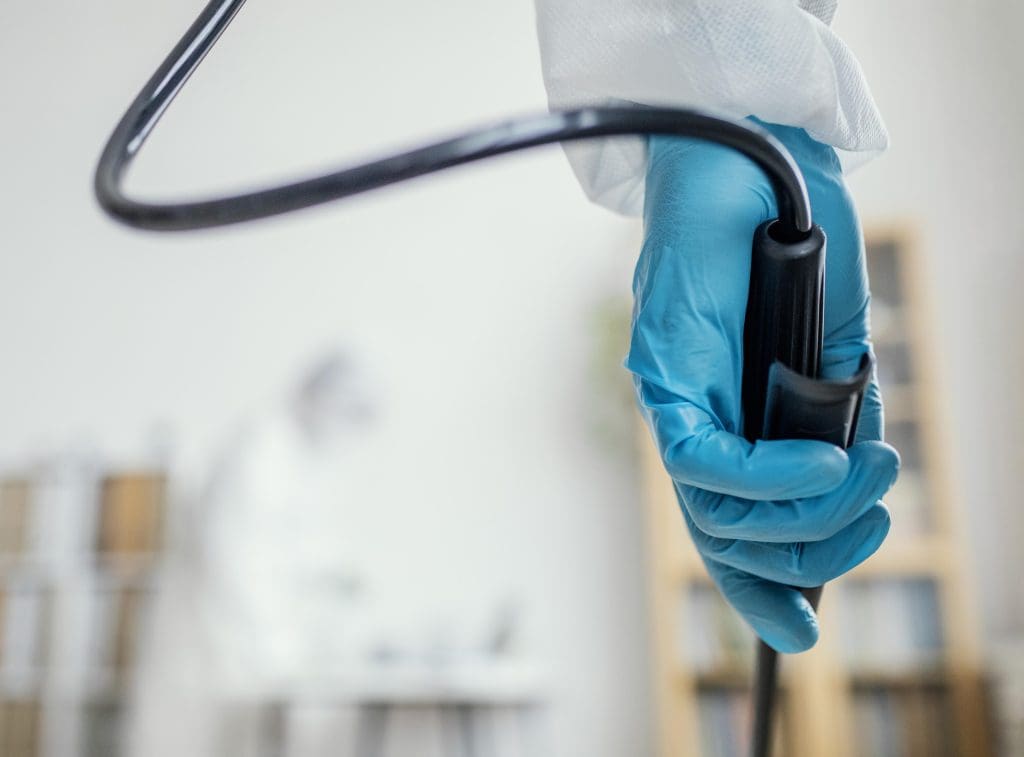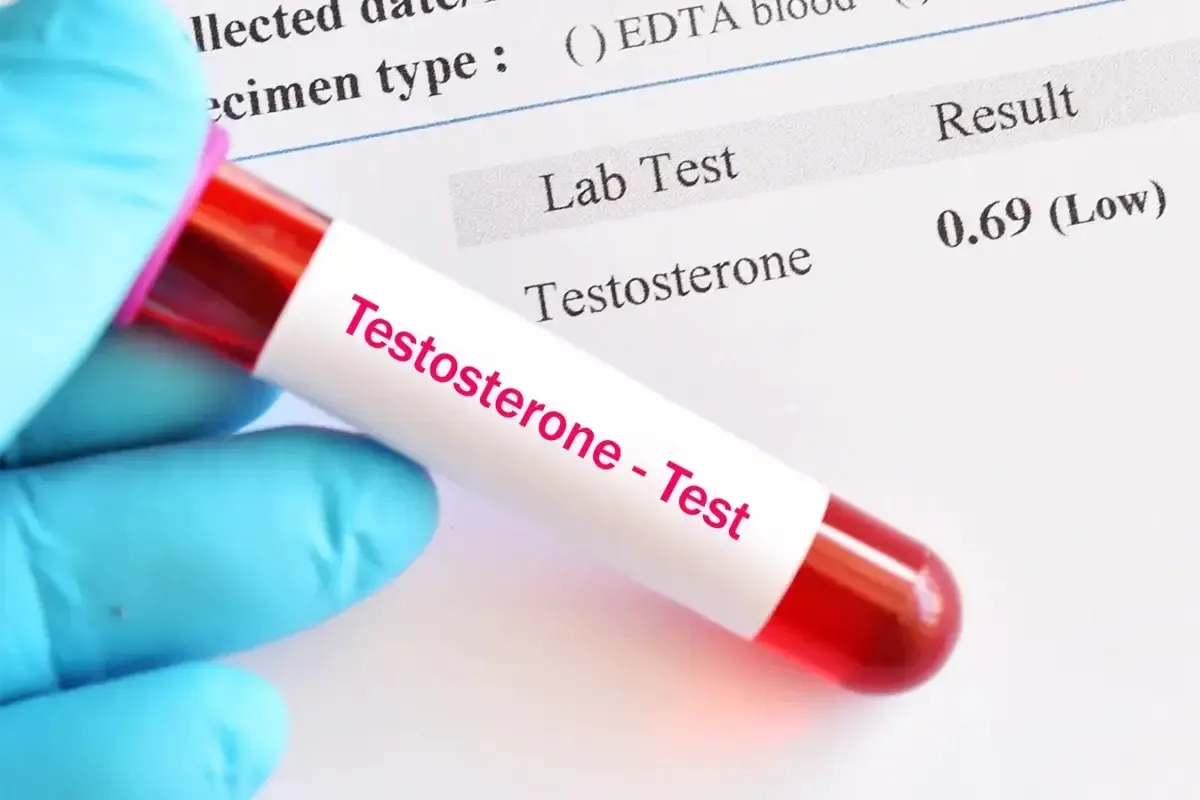What Happens If They Find Cancer During a Colonoscopy? Nearly 1 in 24 adults in the United States will be diagnosed with colon cancer in their lifetime. This makes it one of the most common types of cancer.
A colonoscopy is a key tool for finding this disease early. It helps in early intervention and can save lives. If cancer is found during a colonoscopy, it can change a person’s life forever.
It’s important for patients and their families to know what happens next.

Key Takeaways
- Colonoscopy plays a vital role in detecting colon cancer.
- Early detection significantly improves treatment outcomes.
- A diagnosis of colon cancer can be life-altering.
- Understanding the process after a cancer diagnosis is key.
- Timely intervention can lead to better health outcomes.
Understanding Colonoscopy and Cancer Detection
Colonoscopy screening is key in finding and stopping colon cancer early. It lets doctors see inside the colon for polyps, cancer, and other issues.
Colonoscopy is a major weapon against colon cancer. It helps find and remove polyps before they turn cancerous. This way, doctors can catch cancer early, when it’s easier to treat.
Purpose of Colonoscopy Screening
The main goal of colonoscopy screening is to find colon cancer or polyps that could become cancer. It’s advised for adults over 45 or those with a family history of colon cancer.
By finding and removing polyps, doctors can stop colon cancer from starting. This approach has been proven to lower cancer rates and save lives.
How Cancer Is Identified During the Procedure
A flexible tube with a camera is used during a colonoscopy. This lets the doctor see the colon’s lining. If something looks off, a biopsy is taken for more checks.
The procedure is done under sedation to make it less painful. The doctor looks for cancer signs like masses, ulcers, or bleeding areas.
Visual Signs of Possible Cancer
Doctors look for signs of cancer during the colonoscopy, like odd-shaped polyps or masses. The size, shape, and where these are found can hint at their nature.
Biopsies are taken from any suspicious spots to check for cancer. The biopsy results are vital for diagnosing cancer and planning treatment.
Immediate Steps When Cancer Is Suspected
When a colonoscopy finds a suspicious area, quick actions follow. These steps help figure out if cancer is there and how serious it is.
Biopsy Collection Process
If a possibly cancerous spot is found, a gastroenterologist will take a biopsy. They use special tools to remove small tissue pieces.
These samples are then ready for histopathological examination. They are checked under a microscope for cancer signs.
Communication with the Patient
Talking clearly with the patient is key after finding a possibly cancerous spot. The doctor will share the first findings, explain what’s next, and answer any questions.
This talk is not just about sharing facts. It’s also about giving comfort and support during a tough time.
Documentation and Imaging
It’s important to document the findings well. This includes details about the lesion’s location, size, and look. Any images or videos from the colonoscopy are kept for later use.
At times, more imaging tests are suggested to see how far the disease has spread. This info is vital for treatment planning and deciding the best action.
The Biopsy and Pathology Process
After a colonoscopy, if cancer is suspected, a biopsy and pathology process confirm the diagnosis. This step is key to knowing if you have colon cancer and what type it is. It helps decide the best treatment for you.
How Tissue Samples Are Analyzed
If a colonoscopy finds suspicious tissue, a biopsy is done. This means taking a small piece of tissue from the colon lining. The sample is then sent to a lab for analysis.
In the lab, a pathologist examines the tissue under a microscope. They look for abnormal cells or cancer. The lab does tests like histological examination and molecular testing to learn more about cancer.
Timeframe for Receiving Results
How long it takes to get biopsy results varies. Usually, it’s 7 to 10 business days for the report. But, it depends on the case’s complexity and the lab’s workload.
Your doctor will tell you the results. It’s important to talk to your doctor about what the report means and what comes next.
Understanding Your Pathology Report
A pathology report details what the biopsy found. It tells you the cancer type, its grade, and if it has spread.
- The report will say what type of colon cancer you have, like adenocarcinoma.
- It will explain the cancer’s grade, showing how much it looks like normal cells.
- The report might also show the cancer’s stage, using the TNM system.
Understanding your pathology report is key to making treatment choices. Your healthcare team will explain the results and what they mean for your care.
Types of Colon Cancer That May Be Detected
Colon cancer is not just one disease; it has many types. Each type needs a special approach. Knowing about these types is key for finding and treating them well.
Adenocarcinoma
Adenocarcinoma is the most common colon cancer, making up about 95% of cases. It starts in the gland cells of the colon and rectum. Early detection of adenocarcinoma is critical for successful treatment. This often includes surgery, chemotherapy, or both.
Carcinoid Tumors
Carcinoid tumors grow slowly and start in hormone-producing cells of the colon. They are rare and may not show symptoms until they grow big or spread. Treatment for carcinoid tumors can include surgery and hormone therapy.
Gastrointestinal Stromal Tumors
Gastrointestinal stromal tumors (GISTs) are rare and occur in the digestive tract. They often start in the stomach or small intestine but can also be in the colon. They begin in specialized cells called interstitial cells of Cajal. Treatment for GISTs usually involves targeted therapy.
Lymphomas
Lymphomas are cancers of the immune system and can happen in the colon. They are rare but can be aggressive. Treatment for lymphomas includes chemotherapy, radiation, or a mix of both, based on the stage and type.
Each type of colon cancer has its own traits and treatment options. Getting an accurate diagnosis through biopsy and pathology is vital. It helps find the best treatment for each case.
Confirming a Colon Cancer Diagnosis
A colon cancer diagnosis is confirmed through follow-up appointments and tests. This is key to know if cancer is present and how far it has spread. It helps doctors decide on the best treatment.
Follow-up Appointments
After a colonoscopy shows possible cancer, follow-up appointments are set. Here, doctors share the findings and what comes next. They also answer any questions or worries.
These meetings help patients grasp their diagnosis and its health impact. It’s important for them to ask about their condition and future steps.
Additional Testing That May Be Required
To be sure of a colon cancer diagnosis, additional testing might be needed. This includes more endoscopic exams, imaging like CT scans, and blood tests. These help check for cancer spread.
The tests needed depend on the colonoscopy results and the patient’s health. Doctors use them to learn more about the cancer, like its size and spread.
Second Opinions
Patients can ask for second opinions on their diagnosis and treatment. A second opinion can offer more insight, confirm the first diagnosis, and suggest different treatments.
Getting a second opinion is helpful for complex cases or when unsure about the diagnosis or treatment. It ensures patients get the best care for their condition.
Getting a colon cancer diagnosis involves careful steps and tests. By understanding these steps and working with their healthcare team, patients can feel more confident.
Cancer Staging and Classification
Staging and classifying colon cancer is key for treatment plans and patient outcomes. Knowing the cancer’s spread helps doctors choose the right treatment.
The TNM Staging System
The TNM system is a common way to stage cancer. It looks at three main parts: the tumor size (T), nearby lymph nodes (N), and if it has spread (M). This system helps understand how far the cancer has grown.
Tumor (T): Shows the tumor’s size and if it has invaded nearby tissue.
Node (N): Tells if the cancer has reached nearby lymph nodes and how far it has spread.
Metastasis (M): Indicates if the cancer has spread to other parts of the body.
Stages of Colorectal Cancer
Colorectal cancer is staged from I to IV. Stage I is the least severe, and Stage IV means it has spread far. Knowing the stage helps predict how well a patient will do and plan treatment.
- Stage I: Cancer is in the colon or rectum lining.
- Stage II: Cancer has grown through the lining but hasn’t reached nearby lymph nodes.
- Stage III: Cancer has spread to nearby lymph nodes.
- Stage IV: Cancer has spread to distant organs or tissues.
Importance of Accurate Staging
Getting the cancer stage right is vital for the right treatment and a good prognosis. It helps avoid treating too little or too much by knowing exactly how far the cancer has spread.
Molecular and Genetic Testing
Along with TNM staging, molecular and genetic tests offer more insights. They reveal genetic mutations or biomarkers that guide targeted treatments. This helps make better treatment choices.
Molecular testing finds specific genes or proteins involved in the cancer’s growth. This shows which treatments might work best.
Imaging Tests for Further Assessment
Imaging tests are key in checking how far colon cancer has spread. They show how much the disease has grown. This info is vital for choosing the right treatment.
CT Scans and Their Role
CT scans are a main tool for looking at colon cancer. They give clear pictures of the belly and pelvis. Doctors use these images to see the tumor’s size, where it is, and if it has spread.
- Identify the primary tumor and its characteristics
- Detect possible spread to lymph nodes or other organs
- Help decide on treatment, like surgery or chemotherapy
MRI and Other Imaging Modalities
MRI (Magnetic Resonance Imaging) is also key in checking colon cancer. MRI gives detailed pictures that help tell different tissues apart. This is useful for seeing how far the cancer has grown and if it’s in the liver.
Other tools, like ultrasound, might be used too. They give extra details.
PET Scans for Advanced Cases
PET (Positron Emission Tomography) scans are used when colon cancer is more advanced. They spot areas where cancer might be growing. This helps find cancer in other parts of the body.
- Find distant metastases
- See how active tumors are
- Check how well treatment is working
These tests are essential for getting the cancer’s stage right. Knowing how far the cancer has spread helps doctors plan the best treatment for each patient.
The Colon Cancer Colonoscopy Response Protocol
When colon cancer is found during a colonoscopy, a specific plan is followed. This plan helps make sure patients get the best care quickly.
Standard Medical Procedures Following Detection
When colon cancer is found, several steps are taken. First, more tests are done to see how far the cancer has spread. A multidisciplinary team then creates a treatment plan just for the patient.
The team looks at the patient’s health and the cancer’s details. This helps decide the best treatment.
Assembling Your Healthcare Team
A multidisciplinary healthcare team is a key part of the plan. This team includes doctors like gastroenterologists, surgeons, and medical oncologists.
- A gastroenterologist checks the GI tract.
- A surgeon looks into surgery.
- A medical oncologist talks about chemotherapy and other treatments.
Timeline of Events After Diagnosis
Knowing the timeline of events after a diagnosis is important. The timeline changes based on the cancer’s stage and the patient’s health.
The steps are:
- Confirming the diagnosis with biopsy results.
- Doing more tests to find the cancer’s stage.
- Talking to specialists to plan treatment.
- Starting treatment, which could be surgery, chemotherapy, or other options.
Understanding the colon cancer colonoscopy response protocol helps patients. It makes it easier to go through diagnosis and treatment, ensuring they get the best care.
Treatment Options for Colon Cancer
Treatment for colon cancer includes many options. These range from endoscopic resection to surgical interventions. The right treatment depends on the cancer’s stage, the patient’s health, and other factors.
Endoscopic Resection for Early-Stage Cancer
For early-stage colon cancer, endoscopic resection is often chosen. This method removes the cancerous polyp or tumor during a colonoscopy. It’s favored for early cancers because it saves more of the colon and cuts down on recovery time.
Surgical Interventions
Surgery is a key treatment for colon cancer, mainly for more advanced stages. Colectomy, or removing part or all of the colon, is a common surgery. Lymph node sampling is also done to see if cancer has spread. Surgery aims to remove the cancer and stop it from spreading further.
Non-Surgical Treatments
Some patients might get non-surgical treatments, either alone or with surgery. These include chemotherapy, radiation therapy, or targeted therapy. The choice depends on the cancer’s stage, the patient’s health, and the tumor’s characteristics.
It’s important for patients with colon cancer to know about their treatment options. Each treatment plan is made just for the patient. Talking about the benefits and risks with a healthcare provider is key.
The Multidisciplinary Approach to Treatment Planning
Treating colon cancer needs a team effort from different healthcare experts. This team approach makes sure all parts of the disease are covered. It ensures the patient gets the best care possible.
Role of the Gastroenterologist
A gastroenterologist is key in finding and treating colon cancer early. They do the colonoscopy, find the tumor, and take biopsy samples for tests.
Their findings help figure out the cancer’s stage and plan the treatment. They also manage symptoms and problems in the digestive system.
Surgical Consultation
Getting a surgical consultation is a big step in planning treatment. The surgeon checks how far the disease has spread and if surgery is possible. They talk about the surgery’s benefits and risks, including the type needed.
Surgical options may include:
- Minimally invasive surgery for early-stage cancer
- Open surgery for more advanced cases
- Cytoreductive surgery to reduce tumor size
Oncology Input
Oncologists focus on cancer treatment and are key in managing colon cancer. They decide if chemotherapy, targeted therapy, or other treatments are needed.
The oncologist works with the surgical team to plan the treatment. They talk about treatment side effects and how to handle them.
Coordination of Care
Coordinating care is vital for smooth and complete treatment. The healthcare team creates a treatment plan that meets the patient’s physical, emotional, and social needs.
Effective coordination involves:
- Regular communication among team members
- Clear explanation of the treatment plan to the patient
- Addressing any concerns or questions the patient may have
Together, the team aims for the best results for colon cancer patients.
Important Questions to Ask Your Healthcare Team
Knowing about colon cancer is key to making smart choices about your care. When you’re diagnosed with colon cancer, understanding your condition and treatment options is vital. It can greatly affect your recovery journey.
Questions About Your Diagnosis
Getting to know your diagnosis is the first step in managing your health. It’s important to ask your healthcare team about your colon cancer diagnosis. You might want to ask:
- What type of colon cancer do I have?
- What is the stage of my cancer?
- Are there any additional tests that need to be done to understand my condition better?
Questions About Treatment Options
Treatment for colon cancer depends on the stage, type, and your health. It’s important to ask about the treatment options and their side effects. Consider asking:
- What are my treatment options?
- What are the possible side effects of each treatment?
- Are there any clinical trials I might be eligible for?
Questions About Prognosis and Recovery
Knowing your prognosis and what to expect during recovery is helpful. Don’t be shy about asking your healthcare team about your outlook and recovery steps. You might want to ask:
- What is my prognosis?
- What can I do to improve my chances of recovery?
- Are there any support resources for patients and their families?
By asking the right questions, you can better understand your condition and take an active role in your care. Remember, your healthcare team is there to support you every step of the way.
Conclusion
Knowing how important colonoscopy is for finding colon cancer is key. It helps with colon cancer awareness and prevention. Colonoscopy helps spot cancer early, which means doctors can treat it sooner.
The colon cancer colonoscopy response plan is all about quick action. When cancer is found, doctors can act fast. This is thanks to colonoscopy guidelines that help them give the best care.
Early detection is the best way to fight colon cancer. Regular colonoscopies and knowing the risks and symptoms help. This way, people can stay healthy and avoid colon cancer.
FAQ
What happens if cancer is found during a colonoscopy?
If cancer is found, the doctor will take a biopsy to confirm it. Then, the patient will see a specialist for treatment planning.
How is colon cancer diagnosed after a colonoscopy?
Colon cancer is diagnosed with a colonoscopy, biopsy, and pathology. The biopsy checks for cancer cells. The report tells the cancer type and stage.
What are the next steps after a colon cancer diagnosis?
After diagnosis, more tests like imaging are done to see how far the cancer has spread. A treatment plan is made, which might include surgery or chemotherapy.
What is the role of imaging tests in colon cancer diagnosis?
Imaging tests like CT scans help find out how big the tumor is and if it has spread. They guide treatment decisions.
How is colon cancer staged?
Colon cancer is staged using the TNM system. It looks at the tumor size, lymph nodes, and if it has spread. Accurate staging helps choose the best treatment.
What are the treatment options for colon cancer?
Treatments include endoscopic resection, surgery, chemotherapy, and more. The choice depends on the cancer’s stage and the patient’s health.
What is the importance of a multidisciplinary approach to colon cancer treatment?
A team of doctors, including gastroenterologists and oncologists, work together. This ensures the best care and treatment plan.
How can I prepare for a colonoscopy?
Follow the doctor’s bowel prep instructions, which include a clear diet and laxatives. Tell the doctor about any medications or health issues.
What are the benefits of regular colonoscopy screening?
Regular screenings can catch cancer early, when it’s easier to treat. They also help prevent cancer by removing polyps.
What are the risks associated with colonoscopy?
Colonoscopy is safe, but risks include bleeding and reactions to sedation. But, the benefits of the procedure are much greater than the risks.








